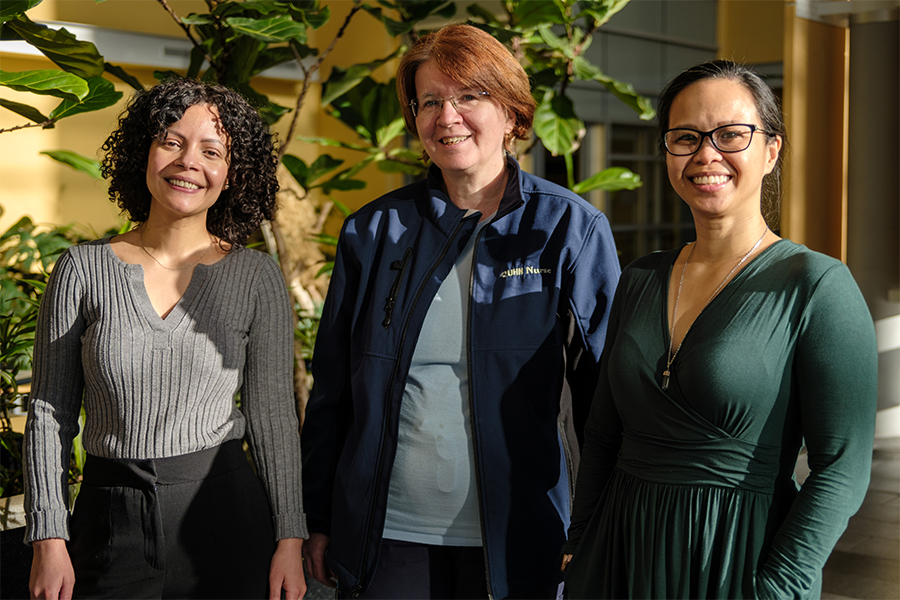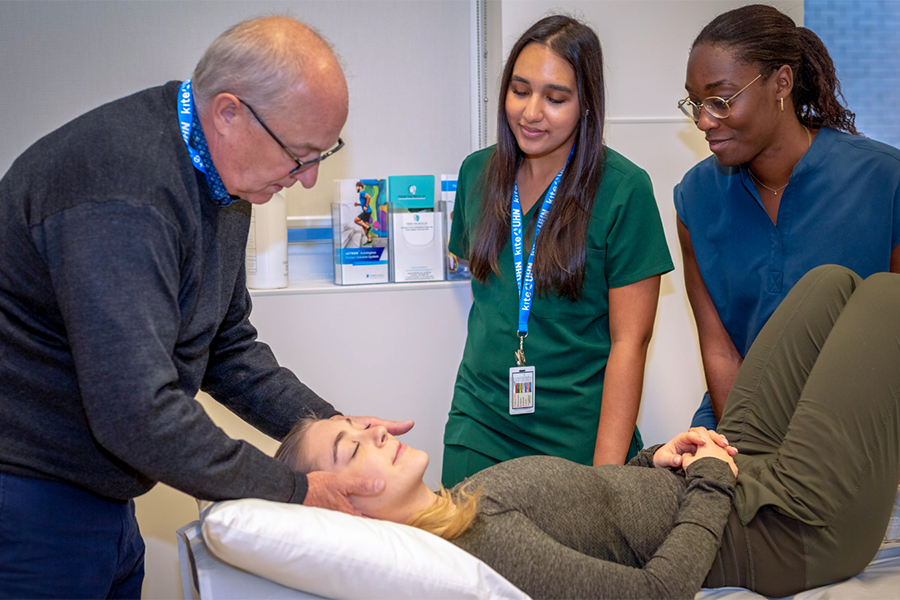
Canada’s health care system faces significant challenges, with millions experiencing inequities in care and lacking access to essential services.
Addressing these challenges requires bold innovation in health care education — empowering health professional students with knowledge and the tools to lead transformative change.
Students have the potential to lead change, but they are often seen as passive learners rather than active participants in change.
In a recent article published by Dr. Kathryn Parker, an educational investigator at The Institute for Education Research (TIER) at UHN, researchers highlight the value of transformative education, which places students at the forefront and teaches them to challenge inequities, question existing systems and engage in compassionate leadership.
Student-led learning environments (SLEs), which have recently also been called student leadership experiences, are a new way of teaching that offers unique, real-world experiences that bring together students, patients, families and other health care professionals to create solutions to pressing health care gaps.
Recently, 79 students from 12 different health care professions collaborated in SLEs, dedicating more than 8,000 hours to learning, leadership and service, and impacting over 3,000 patients.
These programs give students practical, hands-on training and also empower them to help create equitable and compassionate care models.
By fostering collaboration, critical thinking and leadership, SLEs are transforming health care education — and, in turn, health care itself.
Kathryn Parker is an Associate Professor of Transformative Change at the Centre for Advancing Collaborative Healthcare and Education (CACHE) at the University Health Network and the University of Toronto.
This work was supported by generous donors to UHN Foundation.

No one ever changed the world on their own but when the bright minds at UHN work together with donors we can redefine the world of health care together.


